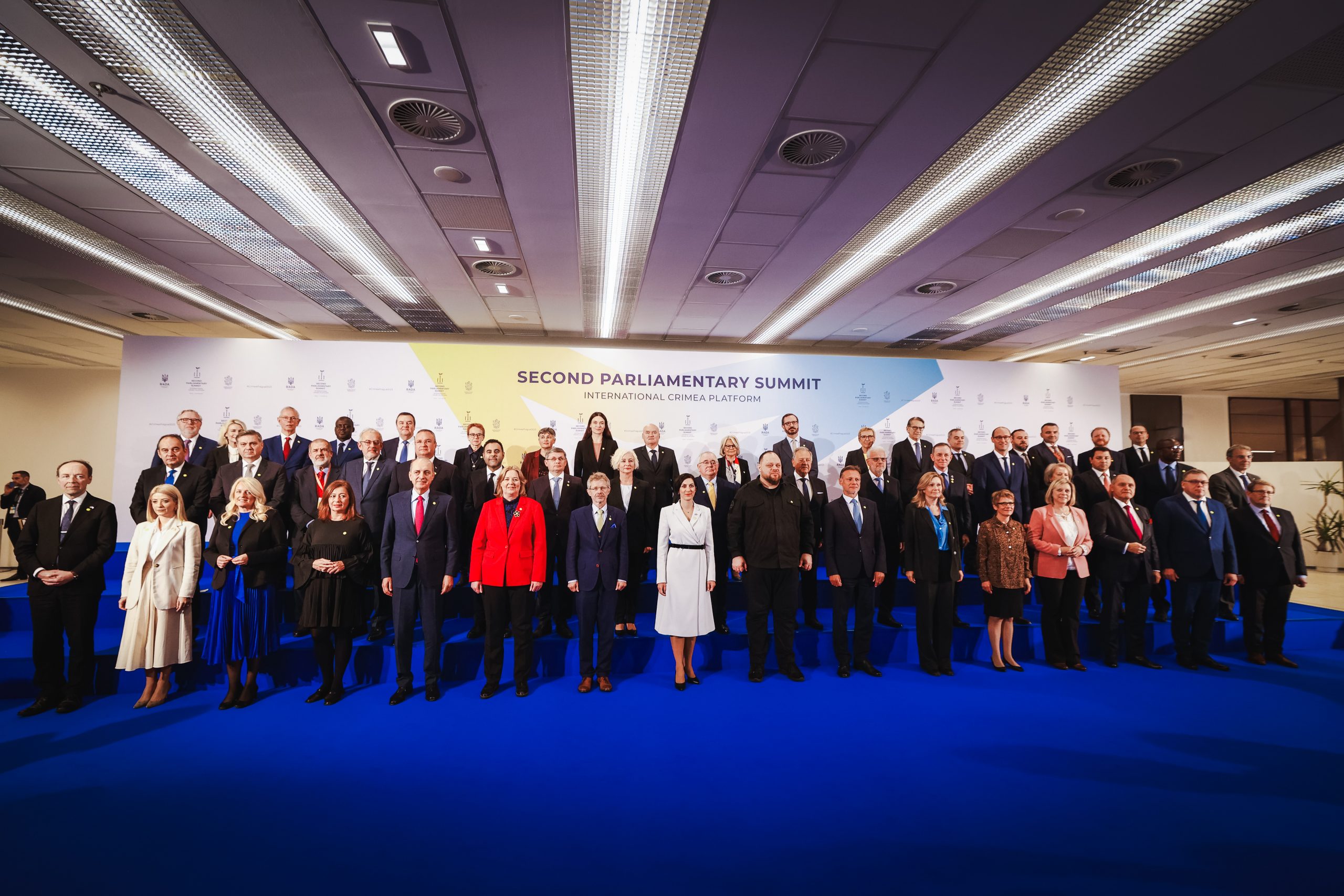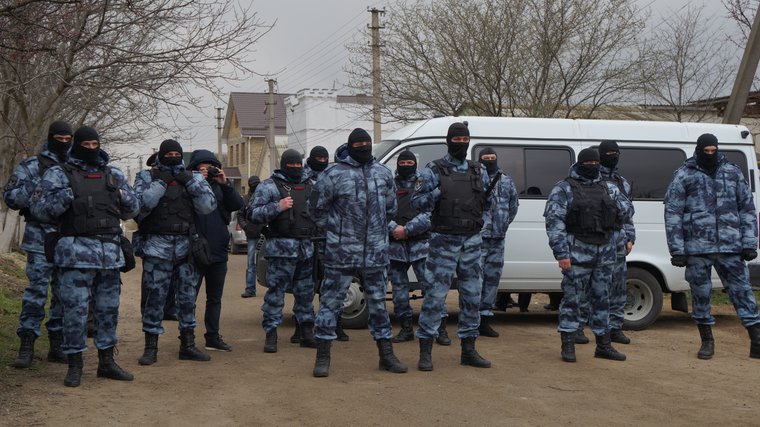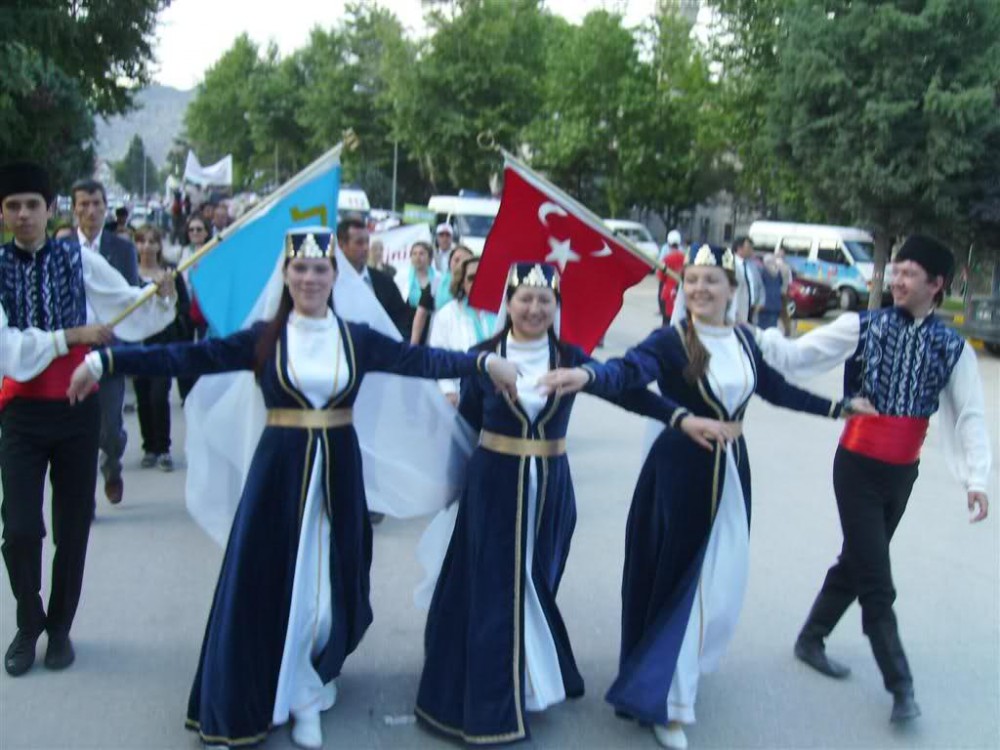At the Second Parliamentary Summit of the International Crimean Platform in Prague, nearly 70 delegations adopted a joint declaration condemning Russia's attempted annexation of Crimea and other Ukrainian territories, while expressing unwavering support for Ukraine’s sovereignty.
Speakers stressed that ending Russia's occupation of Crimea and Sevastopol is fundamental for peace. The declaration reaffirmed the non-recognition of Russia's illegal annexation attempts, calling them a violation of international law.
According to Ukrainian lawmaker Yevheniya Kravchuk, who was a delegate at the summit, it is a "move in the right direction," and Ukraine "is closer to deoccupying Crimea than it was before 24 February 2022," the date when Russia launched its full-blown invasion of Ukraine.
Ms. Kravchuk stressed that this year's number of delegations increased compared to the first parliamentary summit in 2022, from 56 to 69, including from countries from the Global South, which she sees as a particularly positive development:
"This is precisely the region where Russia is trying to exert its influence through propaganda. Despite this, the representative from Sierra Leone received the loudest applause during his speech in Prague. Therefore, it's a myth that Russia has completely subjugated or befuddled the countries of Africa and South America. Representatives from absolutely every continent were present."
Two of the newly-joined "Global South" countries were Sierra-Leone and Ghana.
Israel did not send representatives physically to this summit, noted Yevgeniya Kravchuk. "But they wrote a letter from the Knesset and fully supported Ukraine, reiterating their support for territorial integrity. Of course, there was caution that attention could waver elsewhere, as there are so many wars in the world. However, many speakers linked the Hamas attack on Israel to this axis of evil, which currently includes Russia, Iran, and various terrorist groups."
In the declaration, politicians denounced the gross violations of human rights and persecution of Ukrainians and Crimean Tatars in occupied Crimea since 2014, highlighting activists, journalists, and lawyers.
The Crimean Tatars, an indigenous people of occupied Crimea, have been especially persecuted by Russia for their active protests against the occupation: most of the Ukrainian political prisoners of the Kremlin are Crimean Tatars. Particularly noteworthy is the case of Nariman Dzhelyal, a Crimean Tatar leader who Russia imprisoned on trumped-up charges shortly after participating in the inauguration Crimean Platform Summit in 2021.
How Russia fabricated the case against Crimean Tatar leader Dzhelyal
The delegates condemned Russia's mobilization campaign targeting civilians, illegal deportations of Ukrainians, and theft of grain.
The adopted declaration called on Russia to withdraw forces from the Zaporizhzhia nuclear plant, occupied since 2022, and stop threatening civilian ships to restore freedom of navigation. It urged Russia to immediately resume participation in the Black Sea Grain Initiative, from which Russia withdrew in September and attempted to enforce a de-facto blockade of agricultural exports from Ukrainian ports, albeit unsuccessfully.
This fact was stressed by Ukrainian President Volodymyr Zelenskyy, who pointed out that Ukraine still managed to establish grain exports despite Russia's aggression.
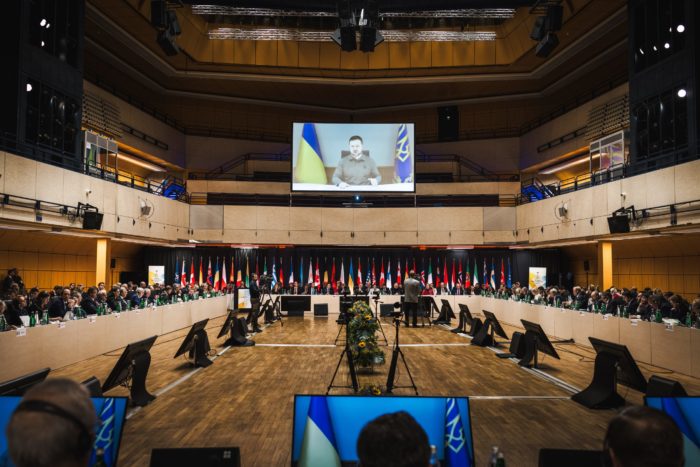
Zelenskyy stressed that Russia's Black Sea fleet is fleeing Crimea:
"The Russian Navy is no longer able to operate in the western part of the Black Sea and is gradually withdrawing from Crimea. This is a historic achievement. Recently, the Russian leader was forced to announce the creation of a new Black Sea Fleet base in the occupied territory of Georgia, in the southeastern part of the sea, as far as possible from Ukrainian missiles and maritime drones," the President of Ukraine emphasized. He added that this will not be an obstacle for the Ukrainian defense forces, so Ukraine will definitely achieve full control over Crimea and the surrounding waters.
In his speech, the Chairman of the Verkhovna Rada of Ukraine Ruslan Stefanchuk noted the important role of parliamentarians in shaping the foreign policy of democratic countries and called on his colleagues to use the tools available to them to restore peace, ensure justice for the victims and inevitability of punishment for the perpetrators. Stefanchuk called for support for Zelenskyy's Peace Formula, which contains 10 points defining the basic principles and mechanisms for ending the war and restoring peace.
"Russian aggression began with the occupation of Crimea and should end with the liberation of the entire territory of Ukraine, including Crimea," said Ruslan Stefanchuk.
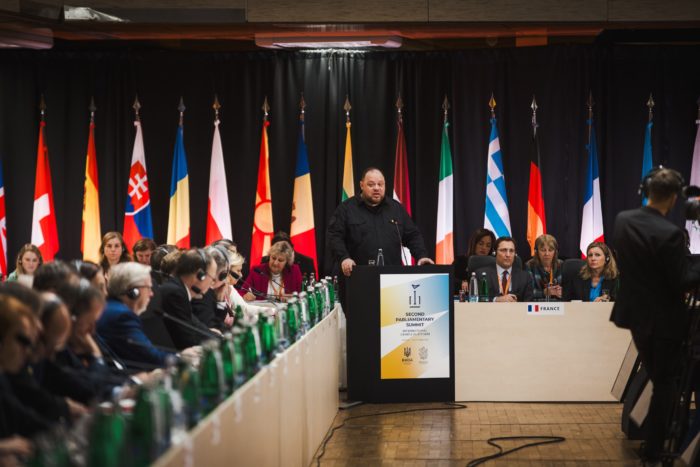
The declaration stated lawmakers' intention to continue aiding Ukraine and upholding sanctions on Russia to pressure it to end the occupation.
The parliamentarians called for investigating war crimes in occupied regions, supporting the ICC and a special tribunal on Russian aggression.
Czech Senate Chairman Milos Vystrcil admitted democracies made a huge mistake not reacting decisively to Russia’s past aggression, saying "This time Putin miscalculated." He cautioned against compromising with dictators, saying defending Ukraine's sovereignty is the right thing to do.
"My country would like to see an end to this war! My country calls on Russia to stop this war!" appealed Mohamed Bangura, Chairman of the Foreign Affairs Committee of the Parliament of Sierra Leone. He noted the war's implications for African states and called for Ukraine's EU membership to spread peace.
"There can be no peace without Ukraine returning to its internationally recognized borders, without Crimea returning to Ukraine," stated Giuliomaria Terzi di Sant ́Agata, Chairman of the EU Affairs Committee of the Italian Senate. He said Crimea must become a symbol of Russia's defeat and assured Italy's support for Ukraine.
Mark Demesmaeker, Chair of the Committee on Transversal Affairs of the Senate of the Belgian Federal Parliament, stated: "The Russian war began precisely in Crimea and Donbas, and it should have ended there. The liberation of Crimea will help not only the security of Ukraine, but also the whole world."
Jussi Halla-aho, Speaker of the Eduskunta of the Republic of Finland, stressed the need to deter Russian imperialism and ramp up military aid to Ukraine, saying NATO membership is the best deterrent.
In conclusion, the joint declaration insisted Russia bear responsibility for the disastrous effects of its war of aggression, demanding withdrawal from all occupied Ukrainian territories.
"What seemed almost inconceivable since 2014-2015 is becoming increasingly realistic now – Ukraine will return [to Crimea]. Moreover, not only the Ukrainian delegation and Crimean Tatar representatives said that we will definitely meet in Crimea, but other speakers from various parliaments also said that we will surely come to Crimea for the final Crimean Platform summit," Ms. Kravchuk shared her optimism.
69 delegations attended the Second Parliamentary Summit in Prague on 24 October, united against Russia’s occupation of Crimea. The first such summit was held in Zagreb, Croatia in 2022, gathering 56 countries.
The Crimean Platform, an international coordination mechanism initiated by Ukraine, was launched at the founding summit in Kyiv in August 2021. The purpose of the platform is to keep Crimea on the international agenda, protect human rights in Crimea, promote the de-occupation of the peninsula, etc.
Related:
- Czech speaker: Crimea response a “mistake” that emboldened Russia’s war

